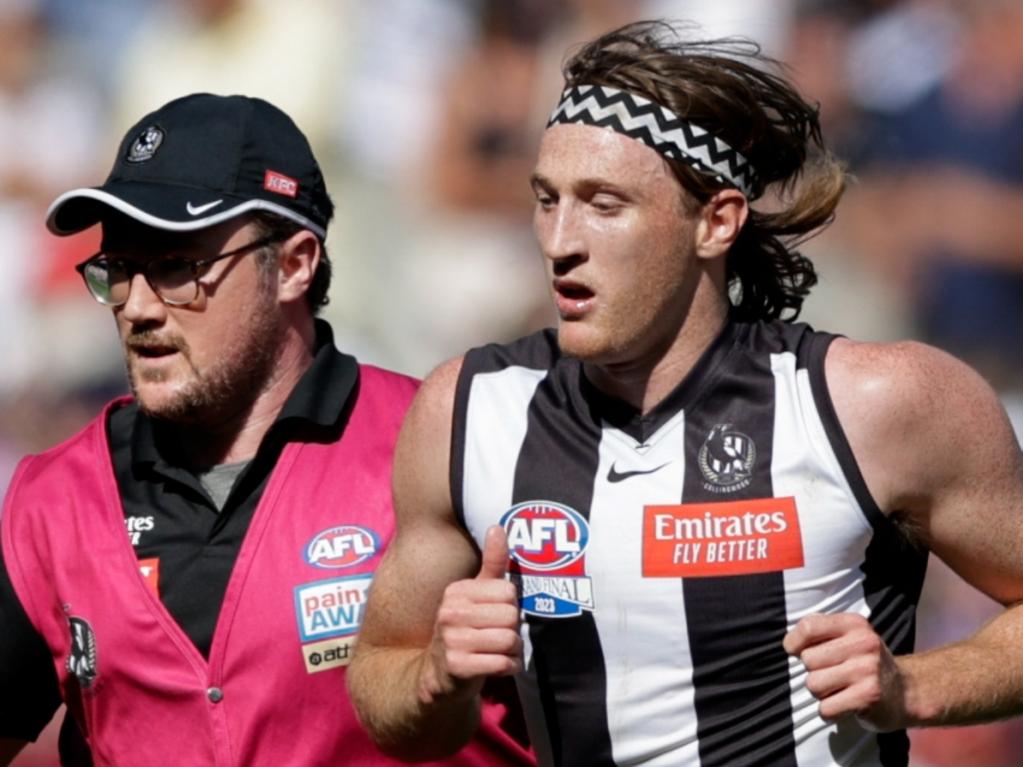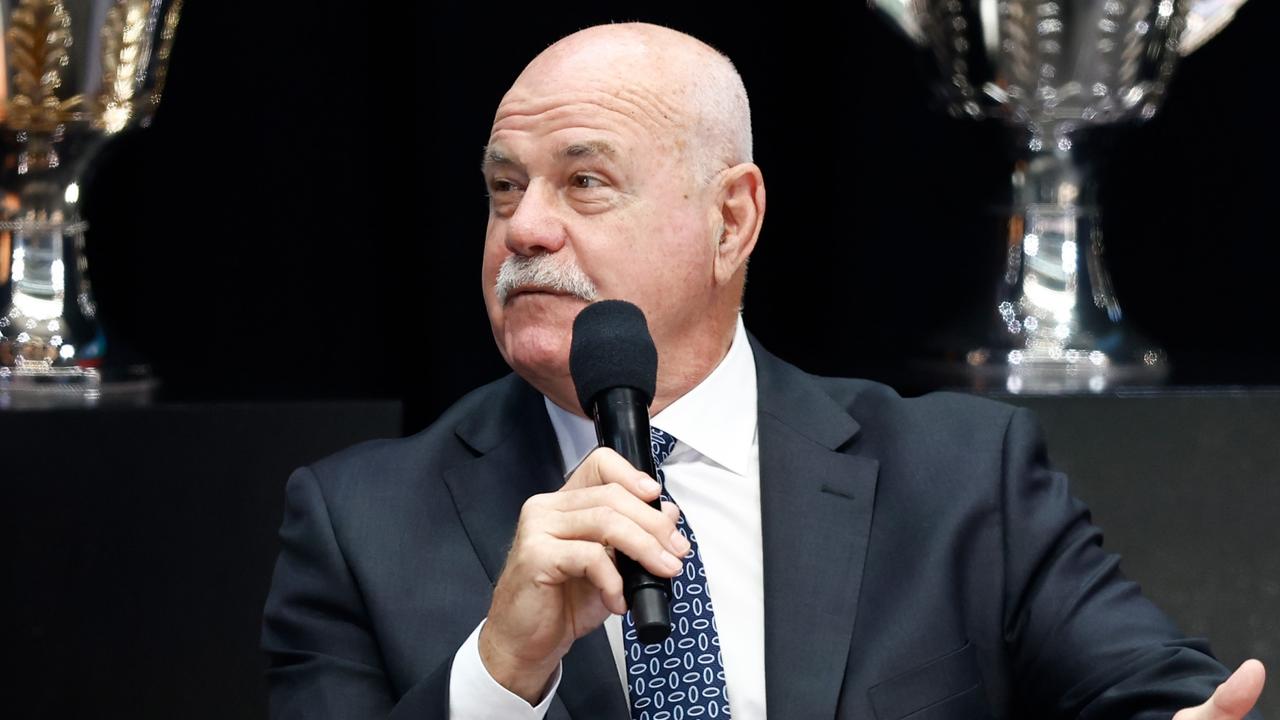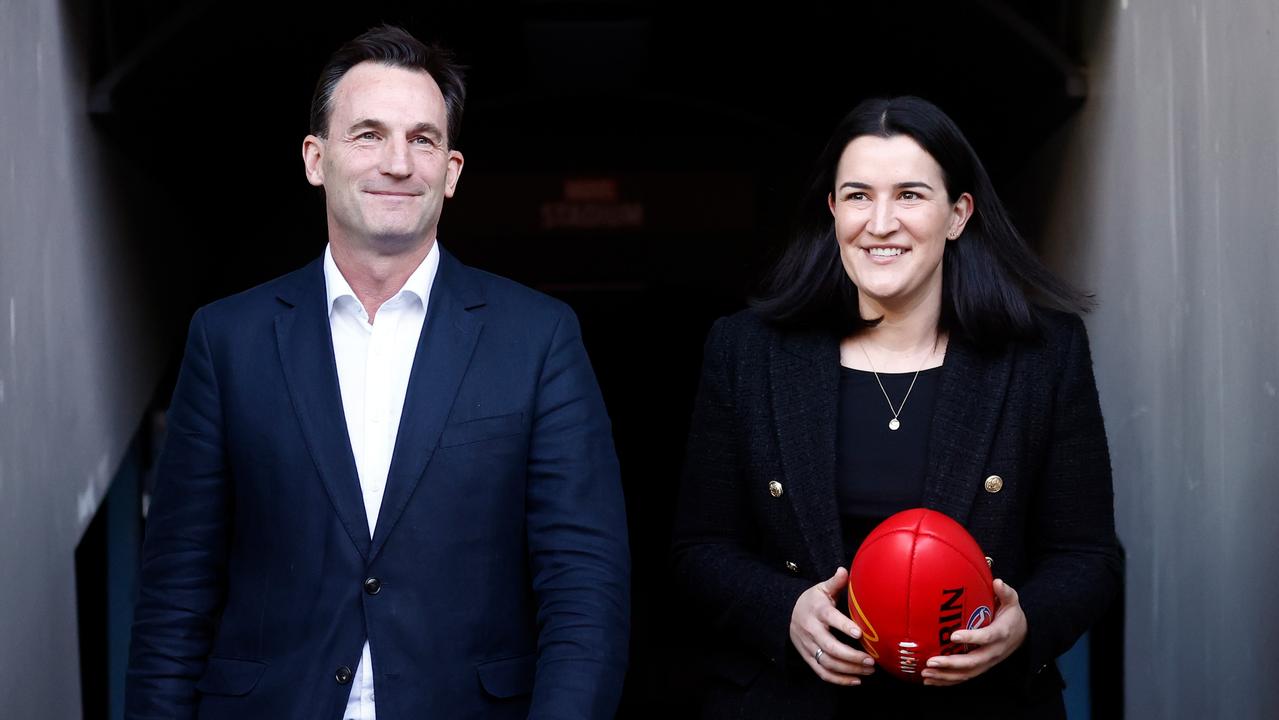Robbo: Leigh Matthews offers newest remedy to AFL’s concussion battle
Kevin Bartlett famously suggested the AFL needed to reduce interchanges to open up the game, that worked. Now, another legend has offered up a similar idea to solve the AFL’s concussion plague.

What goes around comes around in footy.
For 10 years or longer, AFL great Kevin Bartlett was relentless in his belief that interchange rotations needed to be reduced to bring fatigue into the game.
He was shouted down by some as being a silly old fossil, a man hankering for the old days and not being progressive enough for the modern game.
KB’s reasoning was that tired players couldn’t defend as well and that it would help unshackle the game from the defensive strangulation masterminded by the coaches.
Now, another AFL great Leigh Matthews, has called for rotations to be reduced, for the same reasoning as KB – to slow the game – but for a different outcome.
Whilst KB wanted to un-bog the game, Matthews wants to help reduce concussions and head trauma.

A ferocious competitor in his playing days, Matthews believes the high-speed collisions we see in today’s footy would be reduced which would help deliver the players a safer workplace.
As the AFL continues to review its concussion protocols for the 2024 season, Matthews says a reduction of interchanges would be the easy fix.
“For all the tightening of the rules to prevent high contact, in my opinion the modern game is more dangerous than the fabled more violent days of generations past,” Matthews wrote in a column for The Nightly.
“Much of the problem is player-driven. If we really want to make the game safer to play, maybe more fatigue is part of the answer.
“No on-field rule changes required, just massively reducing or eliminating interchange should be seriously considered as part of the search for that better way.
“For all levels of football, that equation seems like a reasonable trade-off to me.’’
It’s a logical argument from Matthews, as it was a logical argument from Bartlett,
And the AFL listened to Bartlett.
In 2013, the average number of rotations was 133. It was capped at 120 per game for the 2014 and 2015 seasons, and then 90 in 2016. It’s continued to reduce. In 2023, it was capped at 75.
But will the AFL listen to Matthews?
As momentum grows at community level to adopt a 21-day stand down and a 28-day return-to-play policy, the AFL has not announced its policy for 2024.

With nine days remaining before the start of the season, it’s clearly a touchy situation, notwithstanding that while the AFL wants a safe playing field, at the same time it is in the Supreme Court fighting 100 former players who have complained they didn’t have a safe playing field.
Contradiction anyone?
If the AFL adopts the 21-day stand down policy, it will be seen as a massively positive step for the safety of the playing cohort and for players at all levels.
If it doesn’t, the AFL will stand accused by some concussion experts of negligence in the face of independent clinical research from the UK and the US that has confirmed, as late as December 2023, that a safe return to play was a minimum 21-day stand down and a 28-day return to play.
And if it doesn’t adopt the proposed AIS policy and retains its minimum 12-day policy main, those same experts would need to hear compelling reasons why not.
Perhaps 12-days minimum and reduced interchanges, as Bartlett and Matthews have argued for separately, is a possible trade-off.





